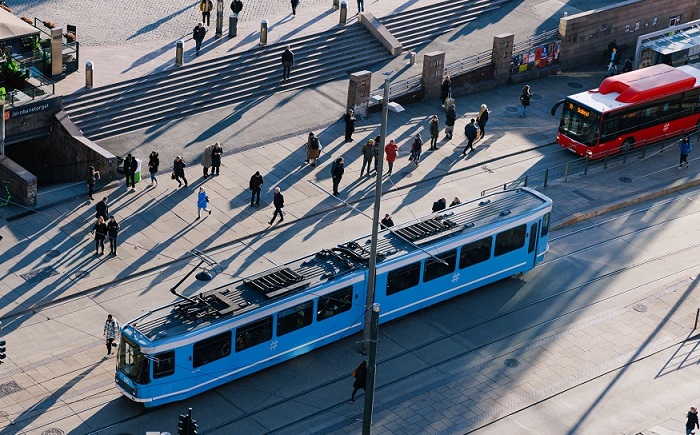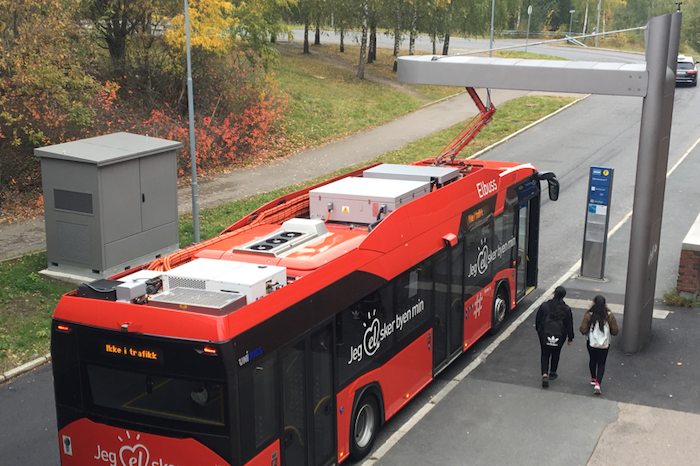Oslo
Are you a registered member of EMTA? Log-in to access contact details.
Basic information
Name of the public transport authority: Ruter
Geographical area: City of Oslo and Akershus county.
Inhabitants in the PTA area: 1.4 million
Responsibilities
Ticketing:
Ruter is responsible for the ticket system, ticket sales and ticket inspection on vehicles administered by Ruter. Ruter is a publicly owned company, and the ticket system and prices of the tickets are decided by the general assembly – but Ruter is responsible for the operation of the ticket system. Tickets are sold in the Ruter app, in kiosks, service points and the Ruter customer service centre. Tickets can also be bought on buses and ferries, but not on trams and metro. Ruter has a cooperation with the local train operator, and tickets can also be bought and validated on board local or regional trains.
Procurement:
The Metro and the Oslo tram are permanent contract partners, whereas buses and boats are awarded contracts after competitive tendering.
Rolling stock and depot ownership:
Ruter owns no buses, trams, ferries or metro cars. The transport itself is performed by various operator companies that have a contract with Ruter. The Metro and the Oslo tram are permanent contract partners, whereas buses and ferries are awarded contracts after competitive tendering. Ruter neither buys or owns buses, boats, trams or metro cars. All transport is carried out by the operating companies that operate under contract for Ruter, and it is the operators who purchase the equipment necessary to fulfill the contracts.
Rolling stock for trams and metro is owned by a publicly owned company who leases the trams and metro cars to the operator Sporveien. For buses there are different solutions, but the rolling stock is either leased or owned directly by different operators. The ferries are owned by the ferry operators.
The depots for trams and metro is owned by the operator. For buses the depots are either owned by a company owned by Oslo (Sporveien Bussanlegg As), Akershus County (AKT As) or by the operators.
Public transport planning:
Ruter is responsible for the service level and the planning of the public transport system i Oslo and Akershus, as well as route planning and timetables.
Development of mobility policy / Transport system planning:
Ruter is not responsible for the development of the long term mobility policy per se, but consults its owners and contributes to ongoing mobility plans and multidisciplinary projects in the region. Ruter also has its own strategy which extends into the long term, and this strategy is influential in planning the local and regional mobility policy.
Marketing of public transport:
Ruter has the responsibility to market public transport in the region.
Passenger information:
Ruter centralises passenger information and distributes it to stations, stops, web, app, etc. Ruter also has its own unit for coordinating information and operation in real time. The unit is staffed 24/7.
Organisational model
Limited company
Ruter is owned 60% by the City of Oslo and 40% by Akershus County. The board of Ruter is elected by the owners in a General Meeting.
Transport service contracting
Procured by the PTA: urban buses, regional buses within the PTA, metro, trams, light rail, ferries, on-demand buses, transport service TT (an offer of alternative transport for persons who are unable to use public transport)
Not procured by the PTA, but most/all services accept PTA tickets: some regional buses stretching outside of the PTA, commuter trains, regional trains
Not procured by the PTA, most/all services do not accept PTA tickets: some regional buses stretching outside of the PTA
Current developments
Ruter is developing and piloting demand responsive services, both automated and with a driver, as an alternative to the private car. Ruter is also working on expanding the mobility concept by including more shared services. Furthermore, the metro is being extended in a continuous tunnel system. The extension, the Fornebu line, will provide better public transport to an area under development. The line is due to open in 2029.


